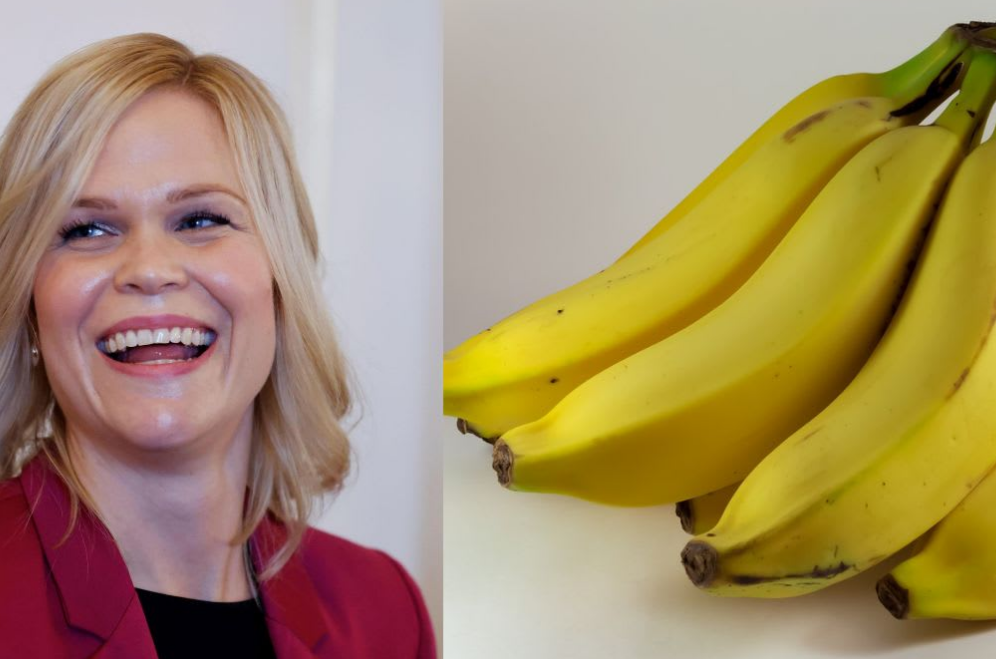Fructophobia : इस मंत्री को केला से लगता है डर, जहां भी जाती है करा देती हैं बैन, आखिर क्या है ये
In a rare case, a top minister in India fears bananas deeply. She bans bananas wherever she goes, leaving people confused. This fear, called fructophobia, is an intense, lasting fear of fruits, especially bananas, affecting daily life.
The minister’s fear of bananas is so intense. She orders bananas removed from government events, school canteens, and public places. Her fear is triggered by just seeing or thinking about bananas. This unusual phobia has raised many questions, as experts try to find out why and how to treat it.
Key Takeaways
- Fructophobia is a rare phobia involving an irrational fear of fruits, particularly bananas.
- A minister in India has developed a strong aversion to bananas, leading her to ban their presence in various public settings.
- The minister’s fear is deeply rooted and can have a significant impact on her daily life and interactions.
- Experts are working to understand the causes and potential treatment options for this rare condition.
- The case highlights the unique and often perplexing nature of phobias that can affect individuals in unexpected ways.
Understanding Fructophobia: Definition and Basic Concepts
Fructophobia is a phobia listed in the DSM-5. It’s an irrational fear of fruits. People with this phobia have a strong, scary reaction to fruits, even just thinking about them.
Medical Classification of Fructophobia
Fructophobia is a specific phobia, part of the anxiety disorders group. It’s a deep, unreasonable fear of fruits. This fear can be for common fruits like apples or bananas, or even rare ones.
Common Symptoms and Manifestations
- Panic attacks or intense anxiety when seeing fruits
- Rapid heartbeat, sweating, and shaking near fruits
- Avoiding places where fruits are found
- Feeling sick, dizzy, or having trouble breathing
Psychological Impact on Daily Life
Fructophobia deeply affects daily life and social interactions. People with this phobia might avoid places with fruits. This can hurt their work and personal life. It also leads to feelings of shame, loneliness, and a lower quality of life.
| Symptom | Prevalence | Severity |
|---|---|---|
| Panic attacks | 90% | High |
| Avoidance behavior | 85% | Moderate to High |
| Physiological reactions | 75% | Moderate |
“Fructophobia is more than just a dislike of fruits – it’s a debilitating condition that can severely impact an individual’s daily life and well-being.”
Fructophobia : इस मंत्री को केला से लगता है डर, जहां भी जाती है करा देती हैं बैन
The minister’s fear of bananas has caught everyone’s eye. This high-ranking government official is afraid of bananas. Because of this, she has banned bananas in places she visits.
People have different reactions to the minister’s minister’s banana fear. Some find it funny, while others are worried. The public reactions have started big discussions. They show the problems public figures face when they have unusual fears.
The minister’s policy implications on bananas have also raised questions. Experts in health and food safety are looking at the effects of these bans. They are thinking about how these bans might affect our access to bananas.
“It’s perplexing to see a public official make decisions based on their own personal phobias, rather than on factual evidence and the best interests of the community,” remarked a local health specialist.
The talk about the minister’s banana phobia shows we need leaders to be fair. They should make decisions that help everyone, not just themselves.
The Science Behind Fruit-Related Phobias
Researchers have made exciting discoveries about fruit-related phobias, also known as fructophobia. They found that a part of the brain called the amygdala plays a big role. This area is key in how we feel emotions.
Neurological Responses to Fruit Triggers
People with fructophobia show more activity in the amygdala when they see fruit. This leads to a strong fear response. They might feel their heart racing, sweat, and even shake.
Genetic and Environmental Factors
Studies suggest that both genes and environment can cause fructophobia. Some people might be more likely to fear fruit because of their genes. Traumatic experiences with fruit in childhood or teen years can also shape this fear.
Research Studies and Findings
Recent studies have uncovered how the neuroscience of phobias and genetic factors in fructophobia work together. A study in the Journal of Abnormal Psychology found a link between brain activity and fear of fruit. This shows that fructophobia has a biological basis.
| Study | Key Findings | Implications |
|---|---|---|
| Journal of Abnormal Psychology | Increased amygdala activity in response to fruit stimuli | Highlights the neurological basis of fructophobia |
| Psychological Medicine | Genetic predisposition and childhood trauma as risk factors | Suggests multifactorial origins of fruit-related phobias |
| Frontiers in Psychiatry | Successful treatment approaches targeting neurological pathways | Provides hope for effective management of fructophobia |
As scientists learn more about neuroscience of phobias and genetic factors in fructophobia, they hope to find better treatments. This could help people overcome their fears and live without the limits of fruit-related phobias.
Impact of Fructophobia on Social and Professional Life
People with fructophobia, a fear of fruits, face big challenges in their social and work lives. This fear makes it hard to join in on daily activities and events that include food. It can lead to feeling alone and problems at work.
In social situations, those with fructophobia might struggle to be part of meals or gatherings with fruits. They might skip out on restaurants, parties, or any place with fruits. This can make it hard to keep good relationships because others might not get how scared they are.
Work can also be tough for those with fructophobia. They might need special help, like designating fruit-free zones or separate eating areas. If these needs aren’t met, it can hold back their career and happiness at work.
But, there are ways to deal with these challenges. Getting help from mental health experts, using relaxation methods, and teaching others about fructophobia can help. These steps can help overcome the phobia’s limits.
By being proactive and open, people with fructophobia can do better in their personal and work lives. This can improve their overall happiness and quality of life.
Treatment Options and Management Strategies
Overcoming fructophobia needs a mix of professional help and self-help. Cognitive-behavioral therapy (CBT) and exposure therapy are key. They help face fears and anxieties linked to fruits.
These therapies help change negative thoughts and slowly expose people to their fears. This is done in a safe and supportive way.
Professional Therapeutic Approaches
Experts like psychologists and therapists can help manage fructophobia. CBT helps change negative thoughts. Exposure therapy makes people less scared of fruits.
Together, these methods help people face their fears. They learn to cope in a healthy way.
Self-Help Techniques and Coping Mechanisms
People with fructophobia can use self-help too. Relaxation techniques like deep breathing and meditation help with anxiety. They also make it easier to handle stress.
Starting small with fruit-related things can also help. It makes facing fears less scary.
Support Groups and Resources
Meeting others with fructophobia can be very helpful. Support groups, online or in-person, offer a safe place to share. They also teach coping skills and provide emotional support.
There are also websites, educational resources, and hotlines for help. They guide and support during recovery.
FAQ
What is fructophobia?
Fructophobia is an irrational fear of fruits. It’s a specific phobia under anxiety disorders. It can lead to panic attacks and making people avoid fruits.
What are the common symptoms of fructophobia?
Symptoms include panic attacks and a fast heartbeat. People with fructophobia also avoid fruits. This can really affect their daily life and how they interact with others.
Why does this minister have a fear of bananas?
The minister has a unique fear of bananas, a part of fructophobia. She bans bananas wherever she goes. This has made people talk and wonder about it.
How does the brain respond to fruit triggers for people with fructophobia?
Studies show the brain’s amygdala gets very active when faced with fruits. Genetics and past experiences with fruits can also play a role in this phobia.
How does fructophobia impact social and professional life?
It can be tough for those with fructophobia in social food settings. Workplaces might need to make special areas or ban fruits. Finding ways to cope is key to keeping relationships and career on track.
What are the treatment options for fructophobia?
Treatments include cognitive-behavioral therapy and exposure therapy. Relaxation exercises and slowly facing fruit-related situations are also helpful. Support groups and online resources can offer extra help.
Imsha Rehman MMS – पाकिस्तानी टिकटॉकर का प्राइवेट वीडियो लीक, मचा बवाल, भड़क रहे हैं लोग











